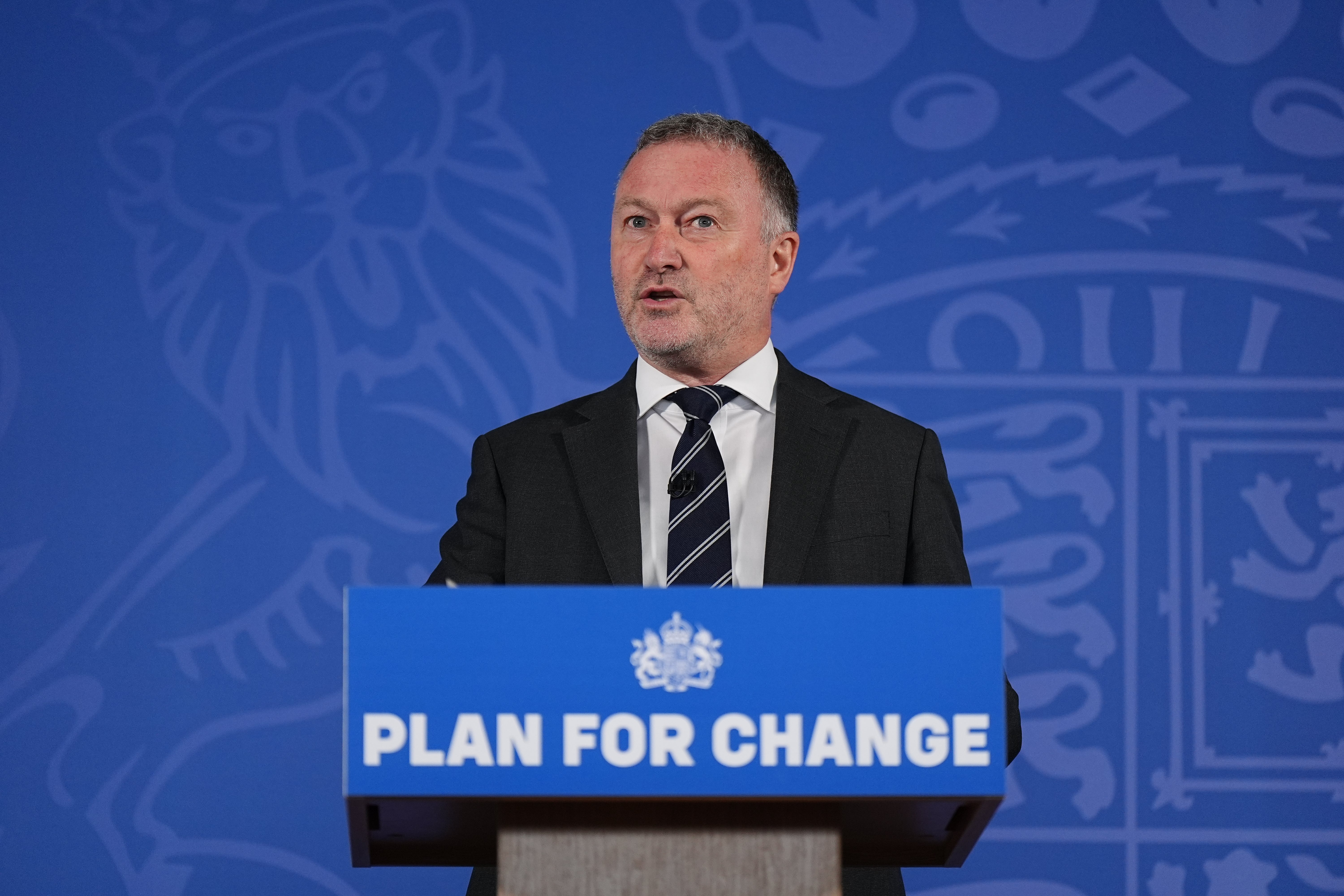Water regulator Ofwat will be abolished as part of an overhaul of a “broken” regulatory system, the environment secretary has confirmed.
Steve Reed said the water industry is “broken” and firms have been fleecing the public under a “regulatory system that let them get away with it”.
Speaking in south-west London, he said: “Our rivers, lakes and seas are polluted with record levels of sewage.”

Mr Reed blamed soaring water bills for straining household finances and warned that poor infrastructure is holding back economic growth. And he blamed rogue water bosses prioritising payouts to shareholders over investment in infrastructure over decades.
He said: “Around £85bn was paid out to shareholders since privatisation, and we’ve seen from the state of sewage in our waterways that there was inadequate investment going into into the water system.
“There were people there that were gaming the system… the previous government allowed regulation to be too light touch.”
Mr Reed thanked Sir Jon Cunliffe and his team for their “outstanding” report and said he would give a fuller response in the Commons this afternoon.
“Water companies have been allowed to profit at the expense of the British people,” he said. Mr Reed
He added: “The government will abolish Ofwat. In the biggest overhaul of water regulation in a generation, we will bring water functions from four different regulators into one.
“A single, powerful regulator responsible for the entire water sector will stand firmly on the side of customers, investors and the environment and prevent the abuses of the past.
“It will provide the clarity and direction required for a strong partnership between Government, the sector and investors to attract billions of pounds of new investment.”

Sir Jon’s report recommended far-reaching changes to the way the water system is regulated as it called the current landscape “fragmented and overlapping”.
In its 88 recommendations, scrapping Ofwat in favour of one powerful regulator is the most significant change to the sector.
It also advised removing the regulatory roles of the Environment Agency and Natural England, which monitor the sector’s impact on nature, such as companies illegally dumping sewage into waterways.
The current system has faced intense criticism for overseeing water companies during the years they paid out shareholders and accrued large debts while ageing infrastructure crumbled and sewage spills skyrocketed.
Campaign group Surfers Against Sewage said that by snubbing calls for public ownership of the water industry, the Cunliffe report “utterly fails to prioritise public benefit over private profit”.
“This is not transformational reform, this is putting lipstick on a pig – and you can bet the champagne is flowing in water company boardrooms across the land,” chief executive Giles Bristow said.
He called on Mr Reed and Sir Keir Starmer to “abandon the dangerous fantasy that the current privatised water industry can be patched up ”.
But Mr Reed said taking water firms into public ownership would cost as much as £100bn, money that would have to be taken out of budgets for the NHS and education.

Following the publication of his report, Sir Jon warned water bills will rise by almost a third by the end of the decade.
Sir Jon told BBC Breakfast: “Bills are going to rise by 30% over the next five years. There are some inescapable facts here. The cost of producing water and dealing with our wastewater is going up. Climate change, higher environmental standards, demographic pressure, the population is going up. Just that need to renew ageing infrastructure.
“The problem comes when you suddenly go from not investing for a long period, to massive investment, in order to catch up. That’s really what’s driven those huge bill increases that we’ve seen.
“We need to help the most vulnerable, we also need to smooth that over a long period so that people can cope with the higher costs of water. And the regulators have a really important job in squeezing efficiency, incentivising the companies to be more efficient.”
Other recommendations from the commission include stronger consumer advocacy, nine new regional water authorities to deliver on local priorities, significant improvements to environmental regulation and tighter oversight of company ownership and government.
The regional authorities – eight in England and one national authority in Wales – would see current planning responsibilities devolved and resources from regulators transferred to ensure investments reflect local priorities and voices.
It comes after nearly nine months of the commission analysing, researching and engaging with more than 50,000 responses to its call for evidence.
